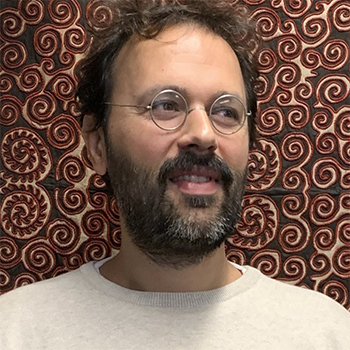The Last Years of Karl Marx: An Intellectual Biography by Marcello Musto, professor of sociology in the Faculty of Liberal Arts & Professional Studies, will be the subject of a virtual discussion hosted by the British Sociological Association on Oct. 25, from 5 to 6:30 p.m. BST.
Musto’s The Last Years of Karl Marx: An Intellectual Biography (Stanford University Press, 2020), investigates Marx’s theoretical insights from the final, mostly unexplored years of his life. In what many describe as a definitive work on the last phase of Marx’s intellectual development, there are clear indications that not only he had not ceased to write, as it has been wrongly assumed for a long time, but, on the contrary, that he extended the range of his research into new disciplines and directions. Based on unfinished manuscripts that remain unavailable in English, on excerpts from his readings, and on letters of the period 1881-83, Musto lays rest the myth that Marx was a Eurocentric and an economic thinker fixated on class conflict alone.

In his final years, the revolutionary who lived most of his life exiled in London, dedicated his attention on anthropological discoveries, analyzed communal forms of ownership in pre-capitalist societies, strongly opposed to colonial oppression in India, Algeria and Egypt, and considered the possibility of revolution in non-capitalist countries. Musto argues that all this allows an interesting reassessment of some of Marx’s key concepts. Originally published in Italian, in 2016, this book has already been translated into 14 languages. In the last years of his life, Karl Marx expanded his research in new directions, studying recent anthropological discoveries, analyzing communal forms of ownership in precapitalist societies, supporting the populist movement in Russia, and expressing critiques of colonial oppression in India, Ireland, Algeria, and Egypt. Between 1881 and 1883, he also traveled beyond Europe for the first and only time.
The book dispels two key misrepresentations of his work: that Marx ceased to write late in life, and that he was a Eurocentric and economic thinker fixated on class conflict alone. Readers are invited to reconsider Marx’s critique of European colonialism, his ideas on non-Western societies and his theories on the possibility of revolution in non-capitalist countries. From Marx’s late manuscripts, notebooks and letters emerge an author markedly different from the one represented by many of his contemporary critics and followers alike. As Marx currently experiences a significant rediscovery, this volume fills a gap in the popularly accepted biography and suggests an innovative reassessment of some of his key concepts.
Musto is recognized as a leading global authority on the work of Marx and on Marxism. An accomplished scholar, Musto has devoted his academic career to reviving the understanding of Marx’s ideas and their applications to the contemporary world.
In this conversation, the discussants will debate with the author about his innovative reassessment of the last writings and final years of Karl Marx. Participating in this discussion with Musto are Kevin B. Anderson, professor of sociology at University of California, Santa Barbara; Himani Bannerji, professor emeritus of sociology at York University; and David N. Smith, professor of sociology at University of Kansas.
To learn more about this event and to register, visit the British Sociological Association website.
Originally published on yFile.
